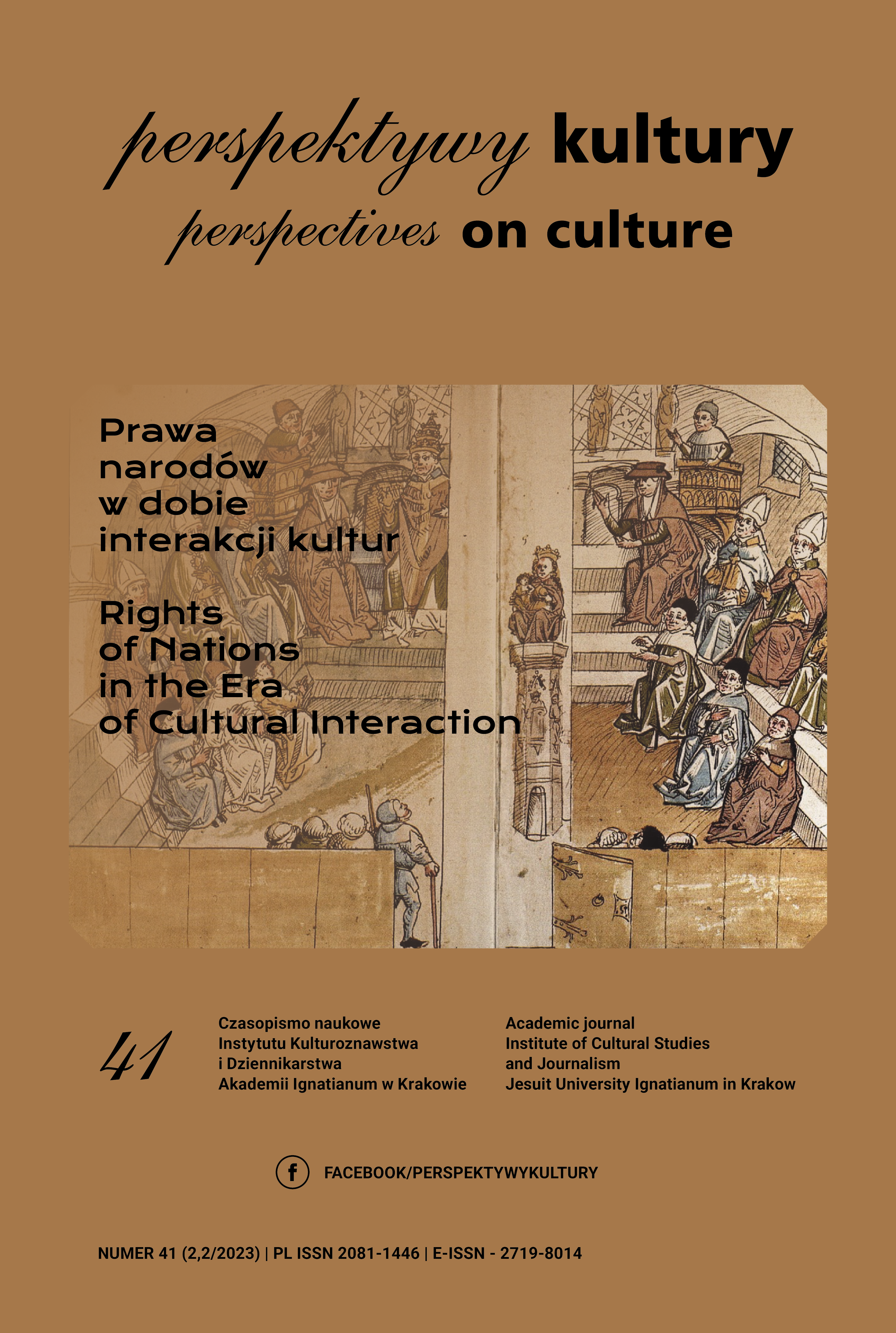Does a Post-modern Consumer Need the Sacred?
Few Impressions about the Issue
Abstract
In the age of post-modernity the religious and ethical awareness of societies are undergoing devaluation. We are witnessing walking away from religiosity and the denial of its values. Religiosity is replaced with “metaphysical” sacralised consumerism and the worship of the body, which are seen as a shorter route to heaven. As the response to the fall of traditional values, a new form of spirituality is emerging. It is based on distance, rejection and going beyond empty and compulsive consumerism. Thanks to that an individual is able to regain self-determination and one’s own humanity.
References
Arendt, H. (1994). Między czasem minionym a przeszlym. Osiem ćwiczeń z myśli politycznej [Between the past and the past. Eight Exercises in Political Thought], trans. M. Godyn, W. Madej. Warszawa: Aletheia.
Baudrillard, J. (2005). Pakt jasności: o inteligencji zła [The Clarity Pact: Evil], trans. S. Krolak. Warszawa: Wydawnictwo Sic!
Baudrillard, J. (2006). Społeczeństwo konsumpcyjne. Jego mity i struktury [Consumer society. His Myths and Structures]. Warszawa.
Bauman, Z. (2007). Płynne życie [Fluid Life], trans. T. Kunz. Kraków.
Bell, D. (1998). Kulturowe sprzeczności kapitalizmu [The Cultural Contra-dictions of Capitalism], trans. S. Amsterdamski. Warszawa.
Campbell, C. (2004). I Shop Thereofore i Know That i Am. In: K.M. Edkstroem & H. Brembeck, Elusive Consumption. London: Rou-tledge.
Frankl, V. (1984). Homo patiens. Warszawa.
Fromm, E. (1989). Mieć czy być, trans. J. Niziński, Warszawa.
Kasper, W. (1990). Postmoderne Dogmatik? Zu einer neueren nordamerikanischen Grundlagendiskussion. Communio, no 19.
Kołakowski, L. (2009). Czy Pan Bóg jest szczęśliwy i inne pytania [Is God happy and other questions], choice and arrangement Z. Mentzel. Kra-ków: Znak.
Kołakowski, L. (2014). Jezus ośmieszony. Esej apologetyczny i sceptyczny [Jesus ridiculed. An Apologetic and Skeptical Essay], trans. D. Zanko, MP J.A. Kloczkowski. Kraków: Znak.
Luckmann, T. (1996). Niewidzialna religia: problem religii we współcze-snym społeczeństwie [Invisible Religion: The Problem of Religion in Contemporary Society], trans. L. Bluszcz. Kraków: Nomos.
Marcel, G. (1984). Homo viator. Wstep do metafizyki nadziei [Homo via-tor. Introduction to the Metaphysics of Hope], trans. P. Lubicz, MP A. Podsiad. Warszawa: PAX.
Marcel, G. (2011). Mądrość i poczucie sacrum [Wisdom and the sense of the sacred], trans. K. Chodacki, P. Cholda. Kraków: Wydawnictwo Ar-cana.
Copyright (c) 2023 Jesuit University Ignatianum in Krakow

This work is licensed under a Creative Commons Attribution-NoDerivatives 4.0 International License.
Autor, zgłaszając swój artykuł, wyraża zgodę na korzystanie przez Wydawnictwo Uniwersystet Ignatianum z utworu na następujących polach eksploatacji:
- utrwalania utworu w formie papierowej, a także na nośniku cyfrowym lub magnetycznym;
- zwielokrotnienia utworu dowolną techniką, bez ograniczenia ilości wydań i liczby egzemplarzy;
- rozpowszechniania utworu i jego zwielokrotnionych egzemplarzy na jakimkolwiek nośniku, w tym wprowadzenia do obrotu, sprzedaży, użyczenia, najmu;
- wprowadzenia utworu do pamięci komputera;
- rozpowszechniania utworu w sieciach informatycznych, w tym w sieci Internet;
- publicznego wykonania, wystawienia, wyświetlenia, odtworzenia oraz nadawania i reemitowania, a także publicznego udostępniania utworu w taki sposób, aby każdy mógł mieć do niego dostęp w miejscu i czasie przez siebie wybranym.
Wydawca zobowiązuje się szanować osobiste prawa autorskie do utworu.





